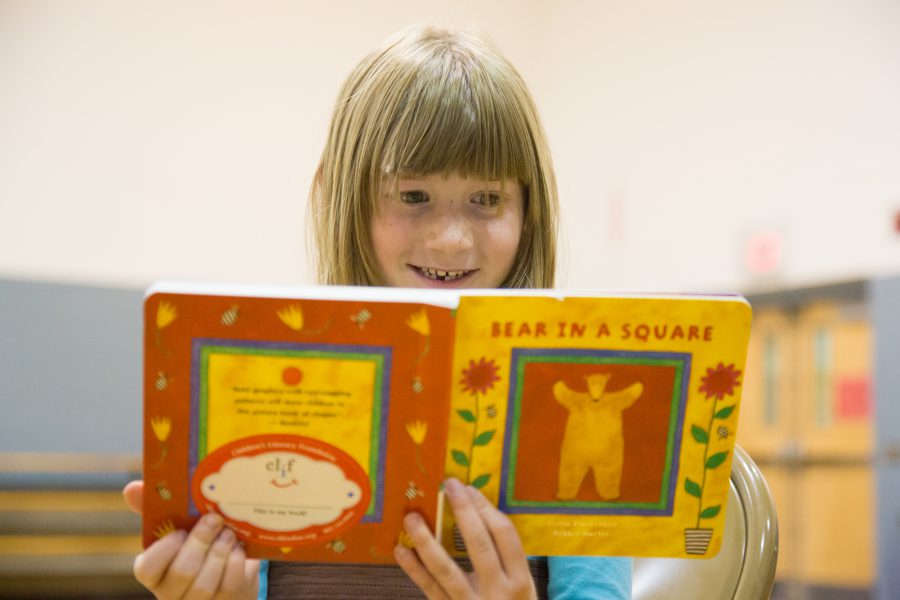
I can remember my Dad reading The Berenstain Bears to me while I slurped on veggie broth and soup noodles. I can remember my Mom reading Harry Potter to me after I’d showered and was in my pajamas. I can remember when I closed the first book I’d ever read all the way through. I was in Kindergarten and it was a book about going to the beach. I bubbled with excitement. I told everyone! My friends, my teacher, my extended family, my cats, the trees in my backyard; I was just that excited to have read a book to completion. Imbued with this fresh confidence, my weekly visits to the local library resulted in me at the checkout desk, hardly clearing the height of the counter, greedily accepting each scanned book into my reusable bag.
It’s these moments that seem to be mere happy remembrances, the good things that make up my childhood. However, I bet you’ve guessed, that these memories of reading and being read to have impacted my life in more than just blissful retrospection. In fact, “childhood” and “reading” are synonymous to me: I cannot think of one without the other. Reading has, in its boundless nature, crafted me into who I am.
What have I learned about myself from reading books? I’ll try to make it exact. The “coming-of-age story” is one of the most popular and influential types of books for kids and adolescents. A main character experiences some sort of struggle, they grapple emotionally with this struggle, pushing the character from the safety of youth into the more complicated world of adulthood. These coming-of-age stories are symbolic of what young people, as flourishing little pea pods, will loosely encounter as they mature. For instance, experiencing the loss of a family member, bullying, difficult friendships, questions about sex and sexuality, etc. Having this resource available to me, as a child and as a young adult, revealed the importance of recognizing and processing emotions (as many characters in these books must do in order to grow up). In short, reading prepared me for the bumbling, fumbling emotional mess that is pre-pubescence and adolescence.
I recently graduated from SUNY Plattsburgh with a degree in English, specifically English Lit, Writing Arts, and English Language Arts. I treasured my time as an English major. I went to college for something I actually love to do – read and write. That’s the thing though; making my hobby into my academic life reminded me that I could use a challenge, that growth is necessary and satisfying. Originally, I wanted to be an English major because I knew I’d be good at it. I knew it would be easy; reading has always come naturally for me. Ironically, being an English major who loves to read was actually really difficult. One day I’d love my essays and the class discussions because the books interested me. The next day I’d be deleting chunks of essays and nodding off during class because I just wasn’t into the literature. That dual-experience affirms that reading begets patience and determination – two things required of a successful college student. I tried to lean into the strange feelings that come with majoring in your passion and I don’t regret a minute of it.
I’ve steeped myself in books since childhood and have emerged strong, robust, and blended with good intentions. At this point in my life, to connect specific childhood reading practices to my adult life is far too daunting. However, I’m certain that bringing books with me on long car rides, participating in summer reading programs, reading out loud, and just adventuring from one literary world to another has astronomically impacted my personal and academic life.
Reading is beneficial to a child’s education; this is widely accepted. But reading should be far more than a school habit. Reading can be a means of self-discovery and we must ardently encourage this unique acquisition of knowledge. To read is to grow. It is that simple.
Skylar Hunyadi, a former CLiF volunteer, is currently pursuing a Master’s degree in clinical mental health counseling at the State University at Plattsburgh. Her undergraduate degree is in English and so she seeks to explore the benefits of writing as a form of therapy in the educational setting. You can usually find her rereading Harry Potter (Prisoner of Azkaban, of course!), perusing local markets, cooking up something colorful, or chilling in downward-facing dog.



